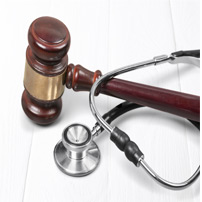Smartphones: The Not-So-Smart Phones For Doctors On The Job
April 22, 2016 While it may not appear as though smartphones and medical malpractice could be related, they in fact are. A new and wide-sweeping type of medical negligence has spurned the creation of the informal term: “the distracted doctor”.
While it may not appear as though smartphones and medical malpractice could be related, they in fact are. A new and wide-sweeping type of medical negligence has spurned the creation of the informal term: “the distracted doctor”.
In fact, in 2014 an anesthesiologist was named in a medical malpractice suit that involved a heart surgery in 2011. The suit claimed that the anesthesiologist had been looking at/using a cell phone during surgery. The patient had a low oxygen level for almost 20 minutes that the anesthesiologist completely failed to notice. While this patient did not end up suffering brain damage or even death, the risk was huge. Even the surgeon took note of this behavior and told the anesthesiologist to discontinue use of the cell phone.
This is certainly not the only case involving a distracted doctor, anesthesiologist, or general practitioner. There have been instances of medication being under or over administered as consequences of these types of severe distractions.
The reality is technology and all technological devices tend to have an overwhelming presence regardless of workplace. The Emergency Care Research Institute (ECRI), released a 2012 study in which cell phones were in the top 10 list of technological risks to patient safety. On the other hand, not many medical care professionals seem to feel as though cellular phones are a strong distraction. ECRI’s study highlights quite different results: cell phones are distracting to all people, therefore, they can potentially negatively affect patient safety if and when a doctor is using or looking at a cell phone or smartphone and is unknowingly distracted from the task at hand. The task at hand, however, is not small: providing attentive care to the patient.
The final issue is that there aren’t many regulations and rules when it comes to smartphone use in hospitals, doctors’ offices and clinics.
After ECRI’s study was published there have been some steps of progress and change. For example, at the University of Rochester Medical Center all personal cell and smartphone use is banned as well as mandating that all staff members have their phones on silent while on shift. This creation of a smartphone use policy could happen at hospitals and clinics across the United States, should they decide to join in to prevent these avoidable distractions in settings where the safety of one’s life is put in danger.
Philadelphia Medical Malpractice Lawyers at Galfand Berger, LLP
The Philadelphia medical malpractice lawyers at Galfand Berger have successfully represented clients who have been injured due to medical negligence, malpractice, and misdiagnoses. If you or any of your loved ones have experienced such a situation, an attorney at Galfand Berger, LLP can help. With offices located in Philadelphia, Reading and Bethlehem, we serve clients throughout Pennsylvania and New Jersey. To schedule a consultation, call us at 800-222-8792 or complete our online contact form.
 Google Screened
Google Screened
